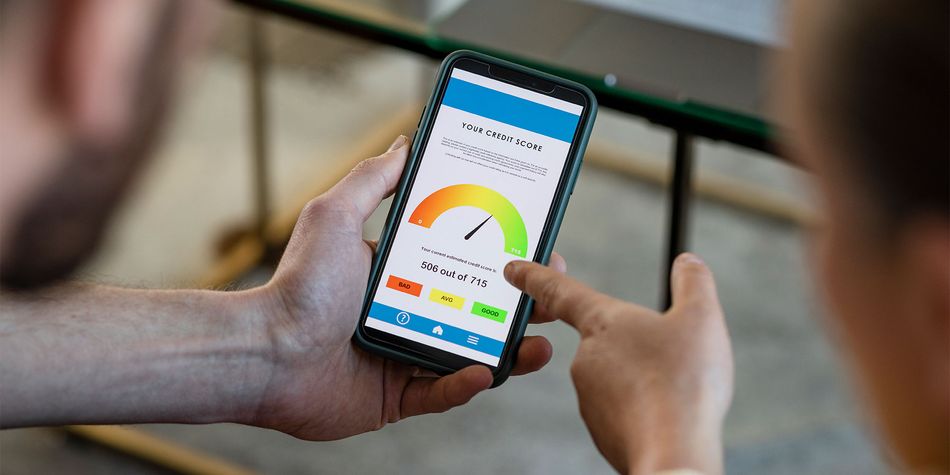By clicking a retailer link you consent to third-party cookies that track your onward journey. This enables W? to receive an affiliate commission if you make a purchase, which supports our mission to be the UK's consumer champion.
MSE Credit Club change leaves Experian credit report and score gap

Checking your full credit report and score for free with all three credit agencies just became more difficult, as MoneySavingExpert (MSE) and Experian have parted ways.
Previously, the only instant way to view your full Experian report and score without having to sign up for its paid service was to join the MSE Credit Club. The personal finance website's free membership gave you full access to your Experian data, along with an analysis of the likelihood of you being accepted for cards and loans.
MSE Credit Club will continue to do this, but will now use data from another credit agency, TransUnion. MSE plans to expand Credit Club with more capabilities in the near future.
The change hasn't taken effect yet, but MSE says it will begin the move to TransUnion within weeks.
Here, Which? explains what the change could mean for your finances, and how you can see all the data that credit agencies have collected on you.
What's happening with MSE Credit Club?
MoneySavingExpert recently emailed subscribers with details of the change. The message said: 'Experian is stopping giving us access to its full credit report. So … we’re moving to one of the other three big credit reference agencies, TransUnion.'
You'll still be able to use Credit Club to see your credit score, credit report and other details, but it'll all be sourced from TransUnion data, not Experian.
TransUnion credit reports were already available for free via the Credit Karma service. Data from the other big reference agency, Equifax, can be viewed for free via ClearScore.
This leaves Experian as the only credit reference agency without a long-term free option. Instead, you must pay £14.99 a month for the Experian CreditExpert service (after a 30-day free trial).
Why has MSE switched data providers?
Marcus Herbert, editor-in-chief at MoneySavingExpert, told Which?: 'We’re switching to TransUnion because Experian will no longer supply us the credit file, and as far as we know (though we can’t confirm) it won’t be supplying to any free third parties – which we agree is a shame for the market.'
The switch from Experian to TransUnion comes ahead of planned changes to MSE Credit Club, which MoneySavingExpert says will offer more value for users.
Herbert added: 'MSE’s new Credit Club is going to be a better tool than we have now, so it’s really good news for our users.
'As for checking all three credit files, that’s absolutely right and something we ALWAYS recommend, ALWAYS have recommended in detail on the site, and in the design for the new Credit Club is prominent on the home page and has ALWAYS been in the brief.'
- Find out more: how to check your credit score for free
How to access your Experian credit report and score for free
Different lenders use data from different agencies, so it's important to check all three of your credit reports if you want the full picture of your credit profile.
You can request to see the data Experian holds on you for free by asking for a copy of your statutory report, which contains a basic view of your credit history. It could take five to seven days before you are able to see the data, and it will not include your Experian credit score, which is a simple way to understand how the information is viewed by lenders.
You can see your Experian credit score without paying a fee by creating a free Experian account, which is updated monthly. It doesn't give you access to your entire report, so you won't be able to see why your score is what it is, although it will provide suggestions on how to improve it.
To see your full Experian credit file, which combines ongoing instant access to your credit history along with a daily update on your credit score, you can sign up for a 30-day free trial of its CreditExpert service and cancel it before you pay the first fee. If you want ongoing access, it'll set you back £14.99 a month.
You can also use the Checkmyfile website to check your credit report and score at all three agencies. It gives you free access for 30 days, then charges £14.99 a month.
The most tactical way to work with this is to start the free trial when you're planning to apply for a loan or credit card from a provider that uses Experian data to make lending decisions. Since Experian is the largest credit reference agency in the UK, this could be quite likely.
What does Experian say?
Experian told Which?: 'We will no longer be providing credit information to MoneySavingExpert.com’s Credit Club, as they have chosen to move to another supplier.
'People can continue to check their Experian credit score, for free, very easily, via our popular app, alongside a number of other features such as Experian Boost and our credit marketplace.'
Which lenders report to TransUnion and Experian?
If you want to keep on top of your credit profile but don't want to pay for the privilege, you might decide to just check TransUnion and Equifax and leave Experian behind.
The trouble with this is you might be left in the dark about some of the information on your Experian credit report, as almost every lender will consult/report to Experian, but not all of them will do the same with TransUnion.
Check a company website to see which credit reference agency it uses. Most banks work with all three of the big agencies, but other firms like mobile phone providers might not.
- Find out more: credit reports - all you need to know
Why it's important to check your credit reports
Credit reports might seem like something you can leave in the background, especially if you don't often apply for loans or credit cards, or take out new contracts that require a credit check.
But a hands-off approach to your credit rating is risky.
Your credit reports are populated with records of your financial activity, which are not always correct. There might be an entry for a missed payment you actually paid, or a loan application that you never made.
If your report is affected by an error, you could find yourself being turned down for loans, given higher interest rates or even chased by debt collectors.
Correcting errors on your credit report can be difficult, but it's crucial if you want to give lenders an accurate picture of who you are as a borrower.
Less dramatic, but still important: checking your credit report can help you figure out how to improve it. Seeing your score rise and fall in isolation is one thing. Having the context of why this happens is more useful.
- Find out more: how credit report errors could ruin your credit score



